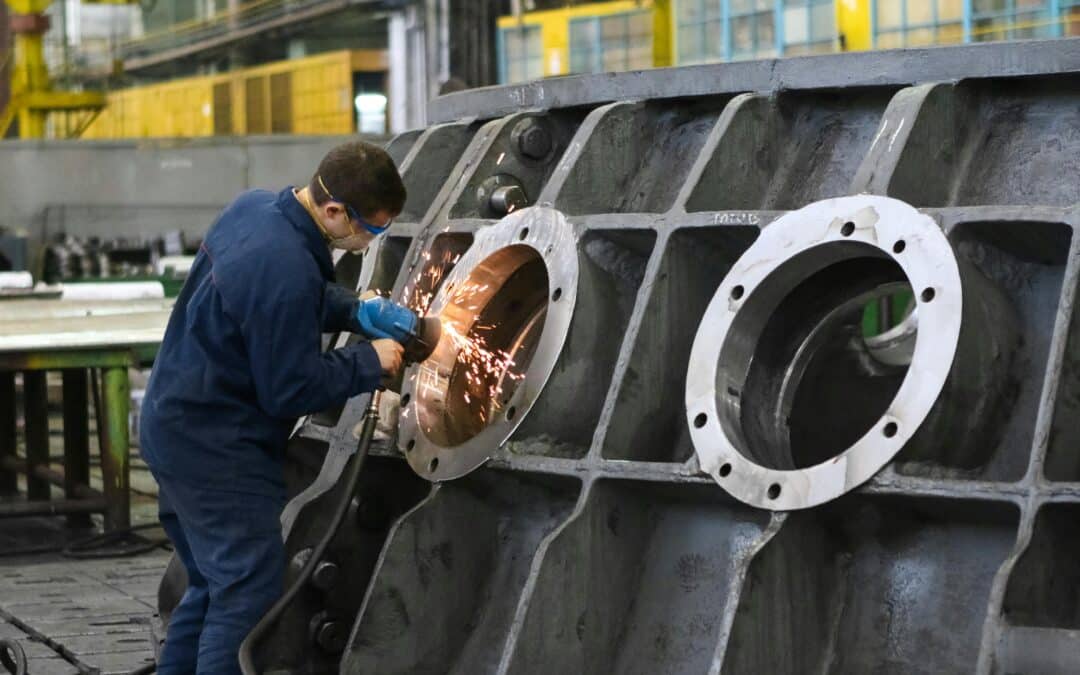Productivity and efficiency are critical in the manufacturing industry’s highly competitive environment. Purchasing machinery and tools that improve efficiency and streamline processes is essential to stay ahead of the competition. We’ll look at three crucial things in this post that can help you grow your manufacturing company.
1. Portable workstation for computers:
There are several advantages that a mobile computer workstation may provide to companies that operate in dynamic settings like warehouses or factories. With the help of these mobile workstations, you may be productive wherever you are by having on-the-go access to necessary tools and data. These workstations are design to last and useful in industrial environments. And they come with features like integrated power sources, height adjustments, and robust construction. Employees can make well-informed decisions and react swiftly to changing circumstances thanks to mobile computer workstations. Which provides real-time data entry, inventory tracking, and process monitoring. Furthermore, because of their adaptability, supervisors can monitor activities more skillfully and guarantee that production targets are accomplished effectively. Purchasing mobile computer workstations may improve communication, expedite processes, and boost output throughout the company. Because they offer height adjustments and lessen the strain that comes with stationary workstations, mobile computer workstations not only increase. Efficiency and productivity but also enhance ergonomics and worker well-being. These workstations are also an affordable investment for companies trying to maximize their operations in dynamic work situations because of their adaptability and durability. They also provide long-term usage and return on investment, making them an affordable investment for businesses.
2. Inventory Management System:
One complete answer to the challenging problem of controlling inventory in manufacturing is to implement an inventory management system. The inventory lifecycle is tracked by these systems, which use cutting-edge technology to monitor each stage, from distribution to storage to purchase. Businesses may reliably collect and record inventory data in real-time. Reducing manual mistakes and enhancing accuracy overall by utilizing barcode scanning and RFID technologies. The proper amount of stock is accessible at the precise moment thanks to the assistance of inventory forecasting software and automatic reorder points in optimizing inventory levels. By doing this, carrying costs are decreased, surplus inventory is kept to a minimum, and cash flow is improved. To help firms make data-driven choices, inventory management systems can offer insightful information about demand patterns, supplier performance, and inventory trends. Firms hoping to improve operational effectiveness. Save expenses, and maintain competitiveness in today’s fast-paced business world must invest in an inventory management system. By guaranteeing product availability and prompt delivery, an inventory management system’s implementation not only improves customer happiness but also simplifies operations. These systems also give companies the flexibility to adjust to shifting consumer needs and maximize their inventory plans for increased profitability and expansion.
3. Quality Control Equipment:
In order to guarantee that manufactured goods fulfill strict quality standards and specifications, quality control equipment is essential. Manufacturers may precisely evaluate dimensional accuracy and tolerances with the use of precision measuring instruments like calipers, micrometers, and laser measuring devices, which guarantee consistency and uniformity throughout production runs.
Coordinate measuring machines (CMMs), hardness testers, and spectroscopic equipment are inspection gauges and testing apparatuses that thoroughly assess material qualities, surface smoothness, and structural integrity. Businesses may quickly identify the sources of problems, discover deviations from required standards, and execute remedial actions. By including these quality control methods in the manufacturing process. This proactive strategy improves overall product durability and dependability while reducing the risk of generating non-conforming items. Furthermore, strong quality control procedures give consumers trust, which boosts brand loyalty and encourages favorable word-of-mouth recommendations. Therefore, for firms that are dedicated to providing excellent goods that regularly satisfy consumer expectations. Investing in quality control equipment is crucial. Manufacturers may reduce the risks of product recalls and faults by investing in quality control technology. Protecting their brand, and lowering potential legal liabilities. Furthermore, by setting items apart as dependable and exceptional, strict adherence to quality standards boosts. Market competitiveness eventually increases consumer satisfaction and loyalty.
Conclusion:
Integrating the use of mobile computer workstations, an inventory management system, and quality control equipment into your manufacturing company can improve efficiency. Streamline processes, and reliably produce high-quality goods. In today’s fast-paced production industry, investing in the proper tools and equipment is essential to maintaining competitiveness.

